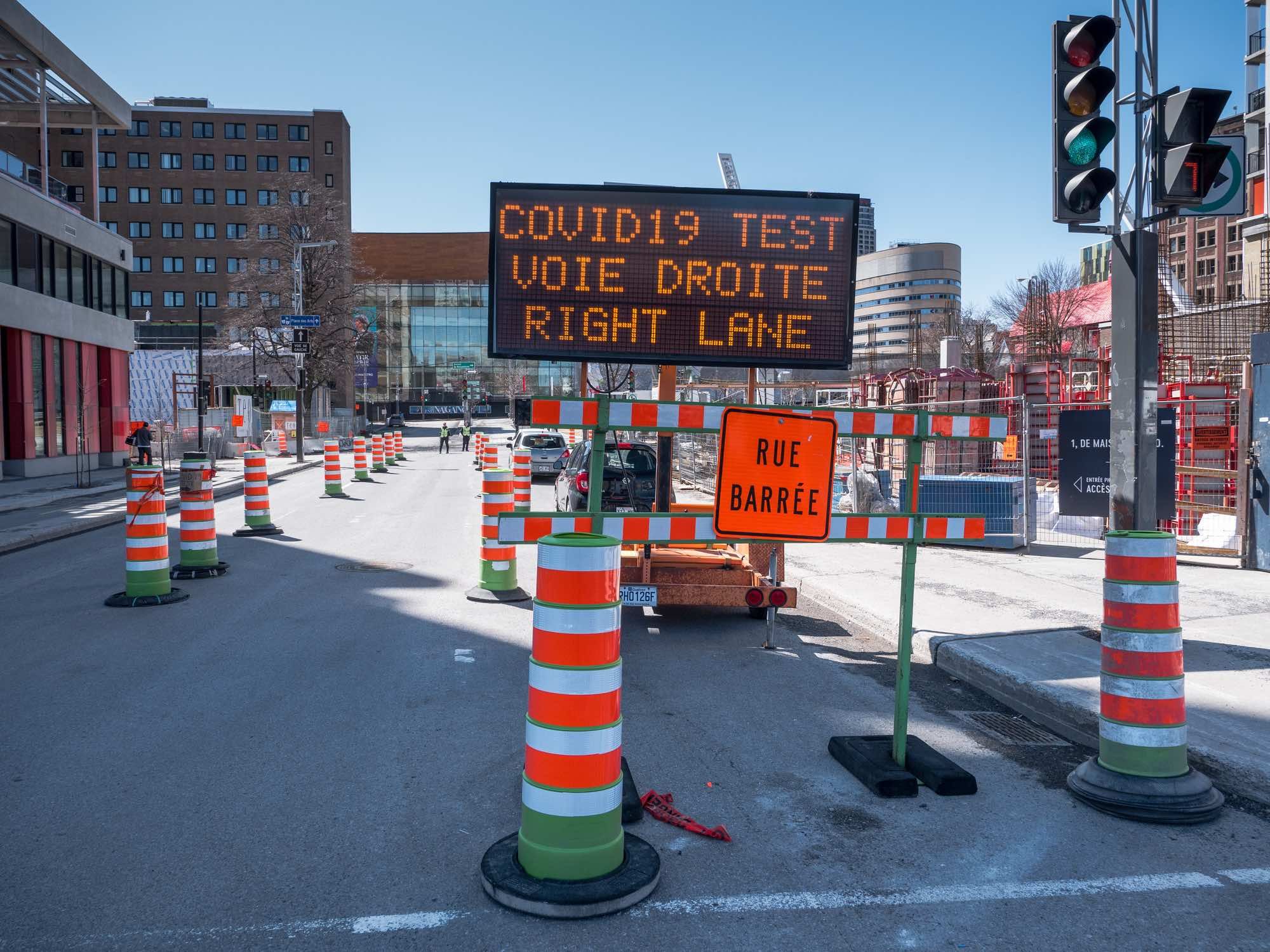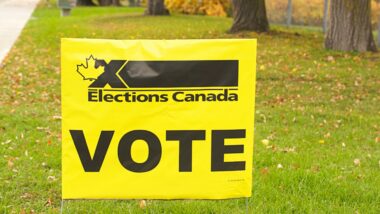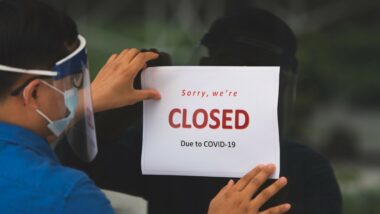Top Class Actions’s website and social media posts use affiliate links. If you make a purchase using such links, we may receive a commission, but it will not result in any additional charges to you. Please review our Affiliate Link Disclosure for more information.
The global pandemic has hit businesses and entire industries with a devastating economic blow. As restaurants, shops and malls begin to reopen, a new wave of COVID-19 threatens to shut down attempts at regaining a somewhat normal state of affairs. Throughout the COVID-19 pandemic, many businesses –and even entire industries– sought refuge in a unique civil law legal construct aimed at relieving them of their legal obligations: force majeure.
What is Force Majeure?
Force majeure, literally means “superior” or “irresistible force” and relieves a party from performing its contractual obligations when an unexpected, external event has occurred which prevents it from performing.
Common law does not have a principle of force majeure, although it is invoked throughout common law Canada. In common law provinces, the party invoking force majeure will need to rely on a force majeure clause in a contract as well as the precise wording of the clause.
On the other hand, the Quebec notion of force majeure is present in various laws and regulations, most notably, the Civil Code of Québec (CCQ). The importance of force majeure as a general defence is well-established in Quebec law.
Typically, the legal effect of a force majeure event is that the debtor is released from having to perform its contractual obligations. Moreover, if liability is at issue, the debtor is also released from liability.
Is COVID-19 A Force Majeure Event?
As mentioned above, force majeure in common law Canada will largely depend on the wording of a contract. However, in Quebec, force majeure is codified in the CCQ, and is therefore always available, unless the parties have agreed to exclude, modify or limit its application in a contract.
Although force majeure is a general legal principle in Quebec, it is narrowly interpreted by the courts.
Whether or not COVID-19 can constitute force majeure under Quebec law will depend on whether certain criteria are met. For one, the effects of COVID-19 on contractual obligations must have been unforeseeable at the time the contract was formed, irresistible at the time the party was to perform its contractual obligations, and finally, the pandemic must have caused the performance of these obligations to be impossible.
To invoke a COVID-19 force majeure event, the following conditions must first be met:
- The event must have been unforeseeable;
- The event must have been irresistible;
- The event must have been independent of the non-performing party; and
- The event must have led to an absolute impossibility of performance.
Was COVID-19 Unforeseeable?
The moment at which the contract was formed will often be determinative of whether a potential force majeure event, such as COVID-19, was unforeseeable at the time of formation. For example, COVID-19 related disruptions were likely unforeseeable in the case of contracts concluded last year, but not after various governments in Canada and elsewhere declared states of emergency.
Force majeure caselaw from the H1N1 virus sheds light on how the courts may interpret COVID-19 as a force majeure event. In Lebrun c. Voyages à rabais (9129-2367 Québec inc.) and Béland c. Voyage Charterama Trois-Rivières ltée, the Court of Québec recognized that H1N1 constituted a force majeure event for an airline company.
The Court released providers of Mexican travel bundles from performing part of their obligations due to the H1N1 virus that was spreading throughout Mexico at the time. The Court deemed the virus a force majeure event, because the H1N1 virus was unforeseeable at the time the contracts were formed.
Is COVID-19 an Irresistible Event?
Force majeure must render any preventive intervention futile. It must also be inevitable and its effects must be insurmountable. However, if an event renders the performance of obligations more difficult or costly, it does not reach this threshold.
For example, natural disasters might be irresistible, but the consequences of a natural disaster could be prevented by taking reasonable measures, and will not 
As COVID-19 shutdowns spread across Canada, forcing businesses to temporarily close, many business owners sought financial relief from their insurers. However, insurance companies, such as Aviva and Intact insurance companies denied COVID-19 claims on various grounds.
Many insurers refused payment, calling the COVID-19 pandemic a force majeure event, preventing them from fulfilling their contractual obligations toward business owners. However, others argued that the global pandemic was neither completely unforeseeable nor unsurmountable.
According to Tony Merchant, who is leading one of the insurance class action lawsuits, the fact that the business interruptions were worse than expected cannot justify insurance companies’ refusals to pay claims. The discrepancy in expectations also does not fulfill the criteria for force majeure.
Additionally, in Quebec, insurers are bound to indemnify insureds for damages caused by force majeure events, unless the insurance policy expressly and restrictively stipulates an exclusion preventing coverage in such cases.
Is COVID-19 an Independent Event?
To invoke force majeure, the event must arise independently of the non-performing party. Further, the non-performing party cannot have any control over the force majeure event.
Although left unmentioned in the CCQ, Quebec courts have generally required the presence of the “exteriority” (l’extériorité) of a force majeure event. Exteriority means that the debtor, the party who has yet to fulfill its obligation, did not participate in the occurrence of the event. The event must have occurred independent of the counterparty’s will.
It is no doubt that COVID-19 arose independently of business owners’ or consumers’ will. However, new claims that may arise after the state of emergency has been declared may be held to a new standard. Indeed, as the pandemic becomes the new norm, businesses and consumers will need to take care to prevent any additional damage, such as taking safety precautions, reading consumer contracts carefully and taking necessary steps to mitigate any harm.
Impossibility of Performance
The final requirement for force majeure is an impossibility of performance. The impossibility of performing a party’s obligations must be so general as to apply to any party in the same circumstances. Particular contracts may contain force majeure clauses that modify this principle.
Total release of contractual obligations occurs when force majeure renders all performance impossible. Partial release occurs where the event only prevents performance of part of a party’s contractual obligations.
For example, in a recent Canada class action lawsuit against Montreal private schools, parents demanded to be partially reimbursed for disrupted in-person classes due to the Quebec-wide COVID-19 shutdown, which they deem a force majeure event. In this case, “the debtors” are the private schools, because they owe the parents the fulfillment of their obligation, namely, teaching students.
In the private school class action lawsuit, only part of the schools’ performance was prevented, as private schools were able to provide in-person classes up until Quebec’s shutdown in March.
COVID-19 and Force Majeure
Although many Canadian COVID-19 class action lawsuits involve claims of force majeure, the determination as to whether COVID-19 disruptions constitute a force majeure event will depend on the facts of each case and the specific contractual obligations at issue. Nevertheless, it is likely that courts would conclude that the pandemic amounts to force majeure in some cases.
Part of the force majeure determination will depend on the emergency orders issued by provincial governments. These need to be examined closely to determine which activities or services have been prohibited or restricted and whether the COVID-19 restrictions render the contractual obligations impossible to fulfil.
For non-Quebec residents, it is particularly important to qualify the type of contract at issue, especially if it is not governed by a force majeure clause.
Importantly, to invoke force majeure, you need to prove the presence of exceptional circumstances. The party invoking a force majeure event has the burden of proving force majeure, as well as:
- That the force majeure event alone caused the invoking party’s (debtor) inability to perform, and
- That the other party (creditor) could not have benefitted from performance due to force majeure.
When the conditions of force majeure are met, the debtor of the obligation is released from performance, such as paying insurance claims or providing in-person educational services.
Where one party is released from a contractual obligation as a result of a force majeure event, the other party will be released from their correlative obligations. This may result in a requirement to repay amounts that have been paid in advance, or a requirement to make partial payment if only part of the obligation was impossible to perform.
For example, in Gestion Initiative Développement GID Ltée c. Québec New York 2001, the plaintiff demanded $100,000 owed to it under a service contract, which was not executed because of the September 11 attacks, which constituted a force majeure event. In this case, the Court ordered payment for services that had been rendered up to September 11 and imposed a deduction on services that had not been rendered because of the September 11 attacks.
As can be clearly seen in this case, Quebec courts do, indeed, qualify certain events as force majeure, and do not shy away from applying the principle and the relief it confers where the requisite criteria is met. COVID-19, for many, has been an unforeseeable and irresistible event. However, whether the courts will qualify the pandemic as force majeure will depend on various considerations, and will differ from contract to contract, and from person to person.
Do you think COVID-19 should be considered a force majeure event? Were you prevented from fulfilling your contractual obligations due to COVID-19 disruptions? Share your story with us in the comments below!
ATTORNEY ADVERTISING
Top Class Actions is a Proud Member of the American Bar Association
LEGAL INFORMATION IS NOT LEGAL ADVICE
Top Class Actions Legal Statement
©2008 – 2024 Top Class Actions® LLC
Various Trademarks held by their respective owners
This website is not intended for viewing or usage by European Union citizens.

















